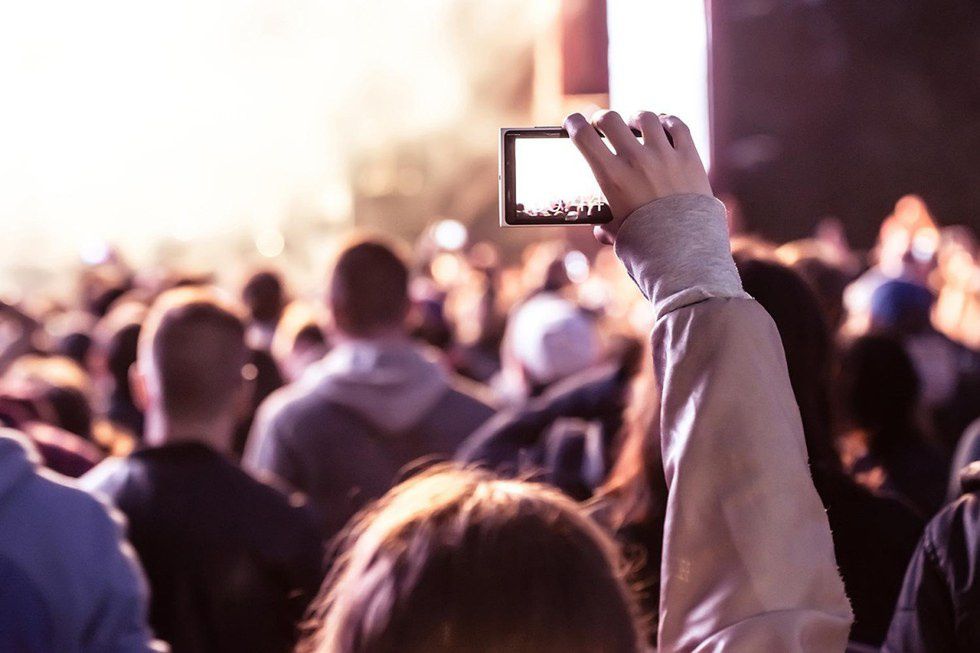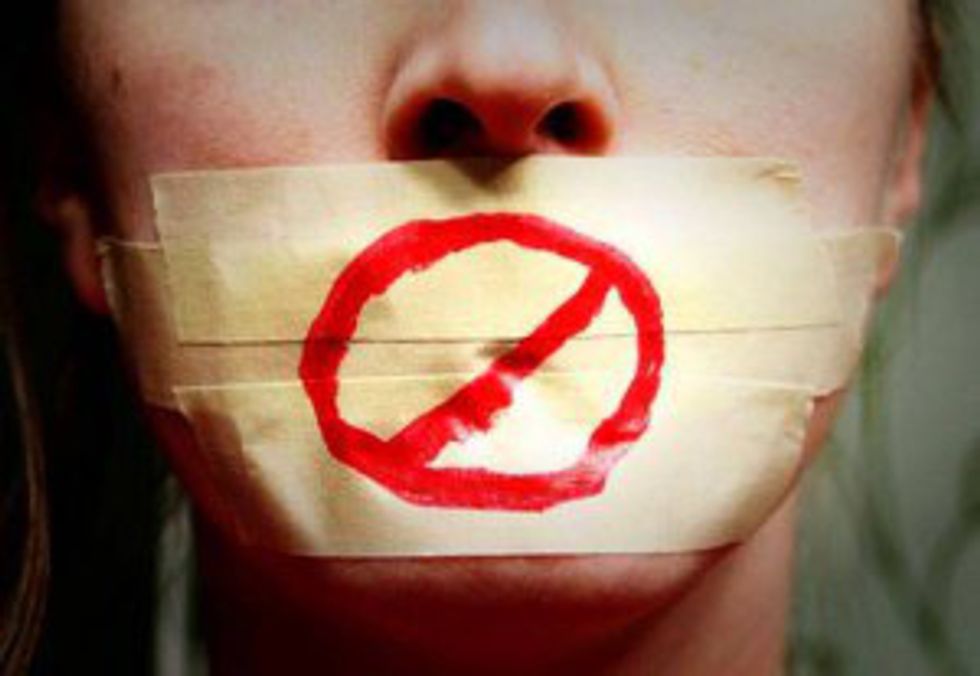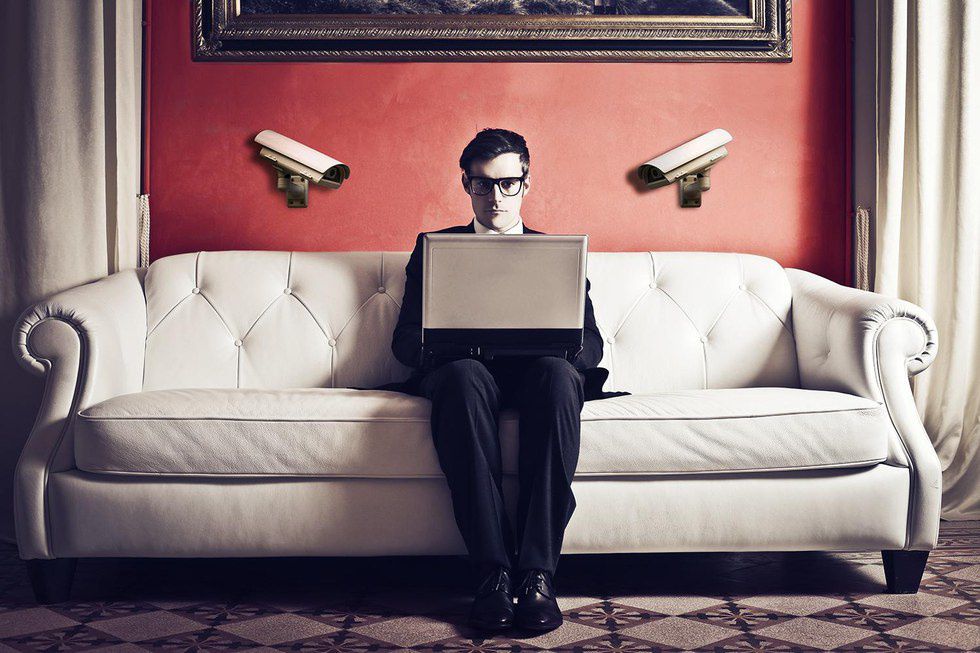If you are reading this, you are consuming citizen-generated media. Pretty cool, right? I'm a journalism student, but I am, by no means, a real journalist (yet). As internet users, we consume more than 15.5 hours of social and news media per day, according to the UC San Diego News Center. Citizen reports done by citizen journalists make up about 7 of those hours.
For those of you who don't know what citizen journalism is, I'll give you a quick definition.
Citizen Journalism: the collection, dissemination, and analysis of news and information by the general public, especially by means of the Internet.
That means that people like me- your average citizen journalist- account for half of the media that you, as a reader, takes in each day.
I think that's pretty neat. However, it makes it almost impossible to get away from the news. People who have had no formal training in journalism are able to spread news that may not be 100 percent credible, and that can be a huge problem. With citizen reports, there are also other dangers that are extremely prevalent.
And that's why I'm here! In this little blurb of an article (based on a project I did for school), I hope to explain to those who may participate in any form of citizen journalism what some of the dangers are and how you can avoid them in your reporting.
I'll start you all out with a little background on modern civilian journalism:
Citizen Reporting In A Digital Age
Though it's not something necessarily new to American media, citizen reporting has seen a dramatic increase in the last two decades, but more so since the 9/11 terrorist attacks. This was one of the earliest times in American history that people had the means to not only record what was happening, but to disseminate it quickly and easily.
According to the Pew Internet Project, the attacks generated the most views of traditional media sites (i.e. websites of news corporations) in the history of the Web. However, the news companies could not keep up with such high demands. Because of this, audiences began turning to personal accounts such as email, weblogs, and public forums to get more information about the attacks.
This was the true beginning of citizen reporting in the Internet Era—the idea of “do-it-yourself” journalism came to fruition through the recounting of details from eyewitnesses and personal story-telling. This shift in the media had lasting effects, and is still largely prevalent in our news today.
But, with this massive shift in the way we use media for news, what kinds of things do we need to look out for to keep ourselves out of trouble?
The Dangers
With posts on social media sites like Facebook, Twitter and Tumblr, as well as articles from citizen reporting outlets like Buzzfeed (and Odyssey!), it is easy for anyone who wants to report on the news to do so.
With proper education on the types of things one might face as a citizen reporter, the person doing the reporting is far less likely to get themselves into trouble with audiences and the law. Even professional journalists deal with cases like the ones that will be shown below— they are not exclusive to people who haven’t had training in journalistic courses.
Bias, Opinions and Fact Checking
Bias in reporting is something that is hard to avoid, no matter how much training a person may have in doing so. Even if you feel like something you're reporting on is completely unbiased, it probably is-- it's hard to eye it, especially in your own reporting. It's like proof reading your own work; it never does the trick.
Avoiding bias in reporting is one of the first things that journalism students learn in their classes. However, not everyone is fortunate enough to take journalism classes. With that being said:
What can you do to avoid bias in reporting?
It's a simple fix to avoid this; fact checking is everything. In life in general, fact checking is super important. Here are a couple sites that will allow you to fact check anything and everything you put out:
Be skeptical, folks, and remember that not everything you read on the Internet is necessarily true. In addition, be careful to avoid having personal connections with the things/ people you are reporting on; this is a one-way ticket to a biased report!
Libel and Defamation
Libel, by definition, is a published false statement that is damaging to a person's reputation. With citizen reporting on the rise in the past few decades, libel is quickly becoming one of the most dangerous issues with this type of journalism. Without proper education on how to avoid libel, the average citizen journalist could end up being taken to court for defamation, or “the action of damaging the good reputation of someone.”
Libel charges often come with some hefty fees-- they are some of the most expensive cases a journalist (or citizen journalist) can face. In fact, according to a Veritas article, citizen journalists account for more than $18.5 million in libel cases every year.
In most libel cases, the person found guilty of defaming someone else will have to pay damages—the monetary amount equated to someone’s damaged reputation. The worse the story hurts a person’s reputation, the more the reporter will have to pay in damages.
What can you do to avoid libel and defamation in reporting?
In order for a citizen journalist to avoid outrageous expenses and the time and effort that goes into being involved in a defamation case, it is important to make sure that all the facts in a report are actually factual (see the fact checking sites above). It is easy to get caught up in a report and dramatize things to get more views or expand and audience, but it is not worth the possibly detrimental outcome.
It's also important to pay attention to what you may be putting in a header or teaser; If a headline says something that could be seen as defamatory, that's all the courts need to pull a case against you. Avoid being misleading at all costs.
Privacy and Consent
It is easy to get caught in the trap of infringing on someone else’s rights to privacy, simply because there is no real set of guidelines as to where privacy begins and ends, especially with journalism and reporting. Not everything we hear is allowed to be published, and private conversations that get published can get a reporter in trouble.
What can you do to avoid libel and defamation in reporting?
Obtaining consent for peoples' words to be published is extremely important in reporting. Don't risk your credibility to get a good story-- you will get caught. Stay open and transparent with the person/ people you are interviewing, and use their information factually and accurately. If reporters do this, privacy issues will go by the wayside in citizen reports.
And there you have it.
Citizen reporting is the future of media as we know it... if we do it right. It allows more people to be a part of the news that is so prevalent in our world. If it's not done right, however, it could be potentially detrimental to both professional and citizen journalism.
With proper education (and a few quick Google searches), the dangers of citizen journalism can be greatly decreased. It may take some time and practice, but it could save audiences and those doing the reporting the hassle for the future.























